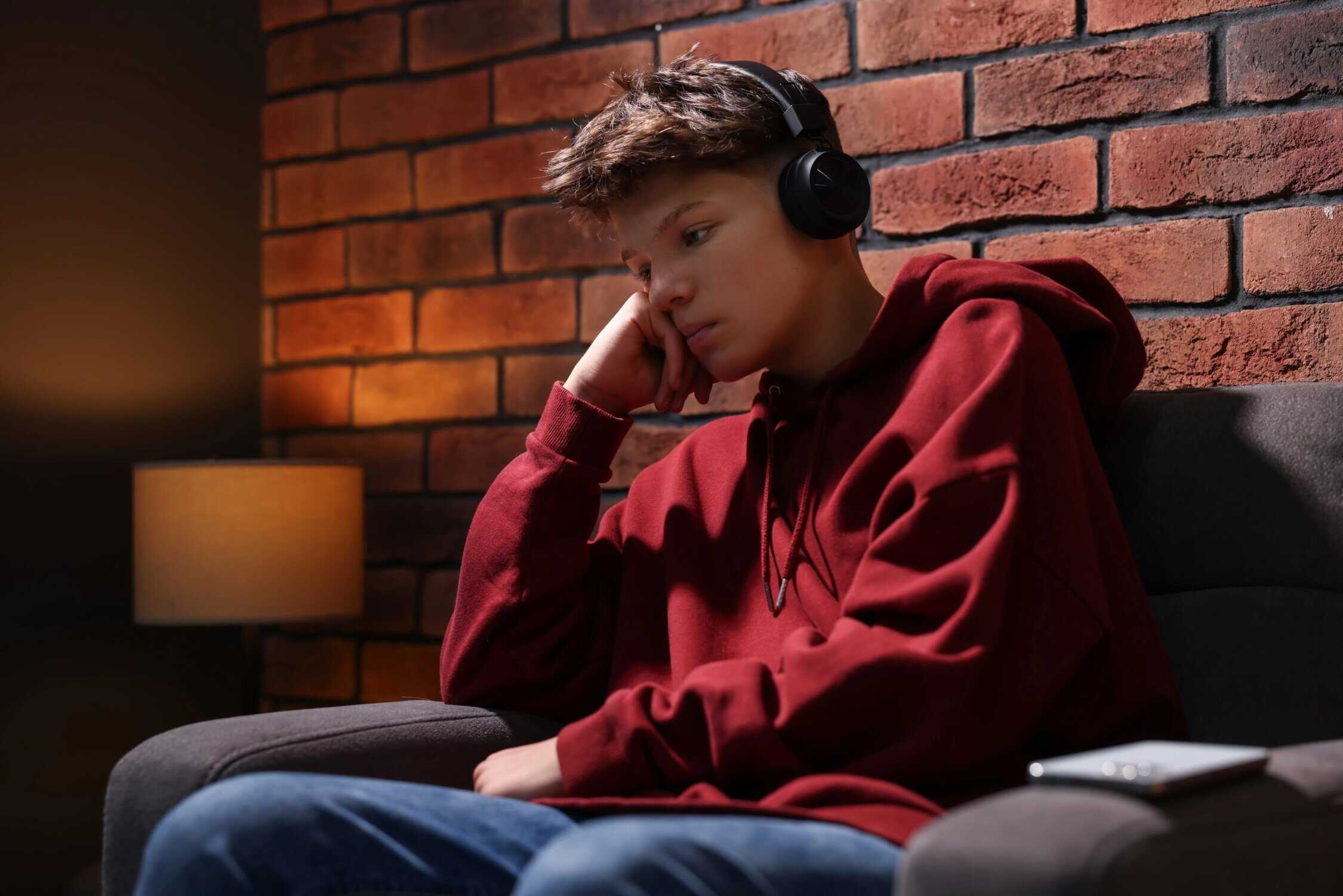Home | Teen Mental Health | LGBTQ Counseling for Mental Health
Teen LGBTQ Counseling and Gender Support
If your teen identifies as LGBTQ+, it’s important to ensure that they have access to appropriate mental health resources. Many gay or transgender teens struggle due to a lack of support from their families and communities, which can lead to health disparities. According to the Centers for Disease Control and Prevention (CDC), LGBTQ+ adolescents are at higher risk than their peers for everything from sadness to being bullied. And, of course, these teens are not immune to the mental illnesses that anyone can experience. Unfortunately, health disparities can even extend to the way they are treated in health care facilities, so it’s important to seek a safe and supportive space for them to work through their challenges.
Table of Contents
LGBTQ+ Teen Suicide
LGBTQ+ teens are also at an increased risk for suicide. In fact, studies have shown that LGBTQ+ adolescents are three times more likely to attempt suicide than their heterosexual peers, while many more have had suicidal ideations (considered suicide or even made a plan). There are a number of factors that contribute to this increased risk, including bullying, rejection, and struggles with accepting their sexual orientation and gender identity.
Mental Health Services for LGBTQ Teens
LGBTQ adolescents often face unique challenges that can affect their mental health. Many experience fear, bullying, or stigma tied to their sexuality, which can lead to depression, anxiety, and other difficult symptoms. At Key Healthcare, we provide specialized mental health services for teens who identify as gay, lesbian, bisexual, transgender, or queer. Our team of licensed professionals offers a safe space where young people can explore their identity, build resilience, and receive the care they deserve.
Evidence-based approaches like psychotherapy and activity-based therapies help teens learn healthy coping skills, improve self-esteem, and discover ways to move toward a healthier and more hopeful life.
Gender Dysphoria in Teens
It’s important to note that biological sex, gender identity, and gender expression are three distinct, though related, concepts. It’s healthy and normal for teens to experiment as they determine who they are, and for some, this includes experimenting with their gender expression. Transgender people and those who are gender nonconforming, on the other hand, soon come to realize that their biological sex simply doesn’t match their gender identity. For some, this leads to gender dysphoria, or a period of intense anxiety and psychological distress related to gender.
Transgender Youth Mental Health
The CDC notes that transgender youth have one of the highest rates of mental health issues of any group. More than 70% report persistent feelings of sadness, and approximately a quarter report having attempted suicide in the past year. Transgender teens are also more likely to experience homelessness, anxiety disorders or other concurrent challenges, and substance abuse.
Support for LGBTQ Teens Starts Here
At Key Healthcare, we provide affirming mental health treatment and counseling for LGBTQ youth in a safe, inclusive environment. If your teen is struggling with issues related to their sexual orientation or gender identity, reach out today to learn how our affirmative therapy program can help them feel seen, supported, and empowered on their path to healing.
Support for LGBTQ Teens Starts Here
At Key Healthcare, we provide affirming mental health treatment and counseling for LGBTQ youth in a safe, inclusive environment. If your teen is struggling, reach out today to learn how our specialized program can help them feel seen, supported, and empowered on their path to healing.
Signs of Mental Health Issues in LGBTQ+ Teens
There are a number of concerning signals that may indicate your LGBTQ+ teen is struggling with their well-being. If you notice any of these warning signs, it’s important to talk to your teen and get them the help they need.
Changes in Sleep
Sleep patterns do tend to change during the teenage years, but excessive sleeping or insomnia could be a sign that your teen is struggling.
Changes in Eating Habits
Teenage appetites can change as well, but these changes are typically more pronounced in teens who are struggling. Look for weight loss or gain as well as disordered eating patterns.
Withdrawal from Friends and Activities
Self-esteem problems are common among LGBTQ+ youth. As their feelings intensify, they may begin to isolate and avoid activities they used to enjoy.
Problems at School
Skipping school or allowing grades to slip are common behaviors for teens who are experiencing bullying or relationship issues.
Self-harm
Some teens who are struggling to come terms with their sexual orientation or gender identity turn to self-harm as a coping mechanism. Signs include wearing long sleeves and pants to cover unexplained cuts on their skin.






Our goal in developing Key Healthcare was to create programs that gave teens the guidance they needed to draw on their strengths and realize their potential to live fulfilling happy lives. Based on our own experiences, we believe that everyone has the ability to change if given the proper structure and connection

Ryan Blivas & Evan Powell
Founders of Key Healthcare
LGBTQ+ Youth Mental Health Treatment and Support in Los Angeles, CA
If your LGBTQ+ teen is struggling, it’s important to get them the help they need. Key Healthcare offers tailored programs, run by licensed therapists, to provide these teens with safe, nonjudgmental support. If you are interested in learning more about our LGBTQ+ youth offerings, contact us today.
Intensive Outpatient Treatment (IOP)
Our adolescent intensive outpatient program generally lasts 4-12 weeks, based on the person’s individual needs. In this least-restrictive program, teens visit our facility for 3 hours per day, 3 days per week. Your teen will participate in a variety of therapeutic activities, such as family therapy, talk therapy, and group activities that are designed to help them work through challenges and build resilient coping skills.
Partial Hospitalization Treatment (PHP)
Our PHP program is the middle ground between the IOP and a full residential program. For 3-4 weeks, your teenager will spend 8 hours per day, 5 days a week at our facility. Under the guidance of a licensed therapist, they will participate in a highly structured, individualized program that includes the same types of therapies and treatment protocols as the IOP.
Teen Residential Program
Inpatient residential treatment is often the best solution for teenagers who are considering suicide, as well as those coping with severe mental health challenges. At Key Healthcare, we offer a highly personalized teen residential treatment program that lasts between 45 and 60 days. This program offers the highest level of care, including 24/7 support.
Extended Care
We also offer a male-only extended care program that combines partial hospitalization program with sober living. If you think this might be an option for your teen, we invite you to get in touch to learn more.
Individual and Group Therapy
We offer highly customized programs to improve your LGBTQ+ teen’s mental health, including any concurrent challenges. From individual and group talk therapy sessions to a variety of therapeutic activities, we offer a complete toolbox to help teens learn to thrive.
It might feel like a big step, but remember why you're here—you’re looking for a way forward.
FAQs
Get answers to frequently asked questions about supporting your gay, transgender, or gender nonconforming adolescent.
Is Being Gay a Disorder?
Not at all! LGBTQ+ youth are not at all disordered. That’s a very outdated belief that the health care community abandoned long ago. However, LGBTQ+ individuals are at higher risk for concurrent mental health challenges, largely due to the discrimination and bullying they tend to face.
Are LGBTQ+ Youth More Likely to Be Depressed?
Unfortunately, this is true. According to the Substance Abuse and Mental Health Services Association, adolescents aged 12 to 17 years old had a greater prevalence of a major depressive episode in the past year (19.5%) than adults (8.8%). Gay and transgender youth are at an even higher risk, especially if they don’t receive adequate support.
Do LGBTQ+ Teens Always Need Treatment?
No. Many people are able to successfully navigate their own journey through discovering their gender identity and sexual orientation. However, this requires a highly supportive family and community, along with a bit of luck. Needing extra support from licensed professionals is completely normal and healthy, and is not a sign of weakness.
Request a Call
Is your teen struggling with mental health or substance use challenges?
Request a confidential call today – our team will walk you through the admissions process, treatment options, costs, and what to expect. Reaching out is a powerful first step toward a healthier future for your teen and your family.
"*" indicates required fields
Insurances we Accept
A Safer Path Forward with Key Healthcare
Supporting LGBTQ teens means recognizing the unique challenges they face and ensuring they never feel alone. Studies show that these adolescents experience higher rates of depression, bullying, and even violence, but with the right resources and compassionate care, healing is possible. Organizations like the Child Mind Institute provide valuable education, and national programs such as the Trevor Project are strong advocates for youth in crisis. Yet the most important part of lasting recovery often begins at home, with unconditional family acceptance and access to affirming treatment.
At Key Healthcare, we provide both in-person and online therapy programs tailored to LGBTQ adolescents. Our team of licensed professionals works to advocate for your teen, help families build stronger connections, and guide each young person toward greater resilience and well-being.
If your child is struggling, don’t wait to get help. Contact us today to learn more about our LGBTQ teen counseling and treatment programs, and take the first step toward a safer, more hopeful future.
Sources
Centers for Disease Control and Prevention. (2024, June 27). Health disparities among LGBTQ+ youth. U.S. Department of Health and Human Services. https://www.cdc.gov/healthy-youth/lgbtq-youth/health-disparities-among-lgbtq-youth.html
Williams Institute. (2020, September 10). Suicide risk and prevention for LGBTQ youth. UCLA School of Law. https://williamsinstitute.law.ucla.edu/press/suicide-prevention-media-alert/
Centers for Disease Control and Prevention. (2024, September). Disparities in school connectedness, unstable housing, and mental health outcomes among transgender and questioning high school students (Vol. 73, No. SS‑4). Morbidity and Mortality Weekly Report. https://www.cdc.gov/mmwr/volumes/73/su/su7304a6.htm
If you are ready to get help for your child, we are here to help. Feel free to call us, email, or fill out our contact form to get started today. You can also verify your insurance to begin the process.
Check Insurance
Structure, support, and a path forward. See how programs at Key Healthcare help teens thrive.
Take the first step by verifying your insurance today and finding out what coverage options are available for your family. Our team will review your benefits and help you understand how to access the care your teen needs.
Medical Reviewer

Dr. Elnaz Mayeh PhD, LMFT
Share Program
Is your teen struggling?
Call today for a confidential conversation with a teen treatment specialist—we’re here to help.
Programs
Mental Health
Check Insurance
Check if your insurance will cover the cost of treatment.
"*" indicates required fields
- Your information is secure & protected by HIPPA.












